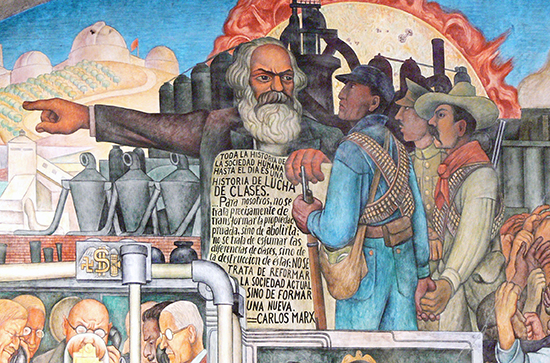The Flight of Ariel:
Universalisms in Latin American Thought Instructor: Daniel SacilottoProgram: Critical Philosophy, Transdisciplinary Studies.Credit(s): 1Date: May 5th, 12th, 19th, 26thTime: 14:00-16:30 ET

DESCRIPTION: In his groundbreaking study “Ariel y Arisbe: evolución y evaluación del concepto de América Latina en el Siglo XX (2000),” Colombian philosopher Fernando Zalamea proposes a broad genealogy of what he named the 20th Century Latin American “universalist” tradition. Guided by the utopian aspiration to nurture productive mediations between distinct modes of expression and seek new modes of integration between different cultural forms, this trajectory of thought emphasized the place of Latin America as a space of cultural synthesis, within which the particularities of its local traditions and unique histories were to become integrated into a global horizon of intellectual production and emancipation across the sciences, arts, and politics.
In this Seminar, we will examine how a universalist tradition conceived of the complementarity between the local and global in the attempt to think of the identity and destiny of Latin American nations and of the continent as a whole. In the first week, we shall introduce how the nascent republics of Latin America sought to extend the labor of independence to think of a cultural and not only economic-political autonomy from the colonial past, progressively problematizing the mimetic impulse.
In this context, we will examine how the dream of Latin America as a universal and cosmopolitan space of cultural synthesis was shaped in the horizon of a new humanist global culture that defied the spirit of positivism and affirmed the experience of mestizaje, looking at seminal texts by José Enrique Rodó, José Martí, and Pedro Henríquez Ureña.
In the second Session, we will explore how a vector of historical materialist thought during the first decades of the twentieth century sought to defy the lingering romanticism and idealism in the early humanist Americanist utopian projects, providing a dialectical interpretation of Latin American history. In this context, the place and destiny of indigenous populations and cultures in nationalist and continentalist visions becomes first rigorously defined, and with it the necessity to overcome the historic tension between the Western and native heritages of Latin America, in sight of the prospect of building alternative modern futures. We shall focus on selections from the works of Manuel González Prada, José Carlos Mariátegui, and Leopoldo Zea.
In the third Session, we will focus on how the “philosophy of liberation” since the 1970s and proponents of the so-called “decolonial turn” from the 1990s onward radicalized the prospective vindication of indigenous populations and the displacement of Eurocentrism against the mimetic impulse, the better to think of the “peripheral” place of Latin American nations in relation to hegemonic geopolitical “centers” through a synthesis of various theoretical registers beyond the resources of traditional Marxist analysis: Singer and Prebisch’s dependency theory, Wallerstein’s world-systems analysis, Foucaultian genealogy of power, and Levinasian ethics, being central among the central registers that mobilize a retrospective critical evaluation of the concept and ideals of modernity. We shall trace this trajectory by examining texts by Enrique Dussel, Ángel Rama, Walter Mignolo, and Santiago Castro-Gómez.
In the fourth and final Session, we will provide an approximation to two exemplary contemporary philosophical projects that provoke a traversal of the tension between regionalism and universalism in forms of writing that also defy the historical-institutional division between so-called analytic and continental approaches: Gabriel Catren’s synthesis of Kantian transcendentalism and Spinozist immanentism in his recently published masterwork Pleromatica: Elsinore’s Trance, and Fernando Zalamea’s application of Peircean pragmatics to yield a formal ontology that synthesizes and systematizes the great Latin American universalist tradition in Ariel y Arisbe: evolución y evaluación del concepto de América Latina en el Siglo XX.
IMAGE: Diego Rivera, Mexico Today And Tomorrow, 1935.
To see The New Centre Refund Policy CLICK HERE.
To see The New Centre Refund Policy CLICK HERE.